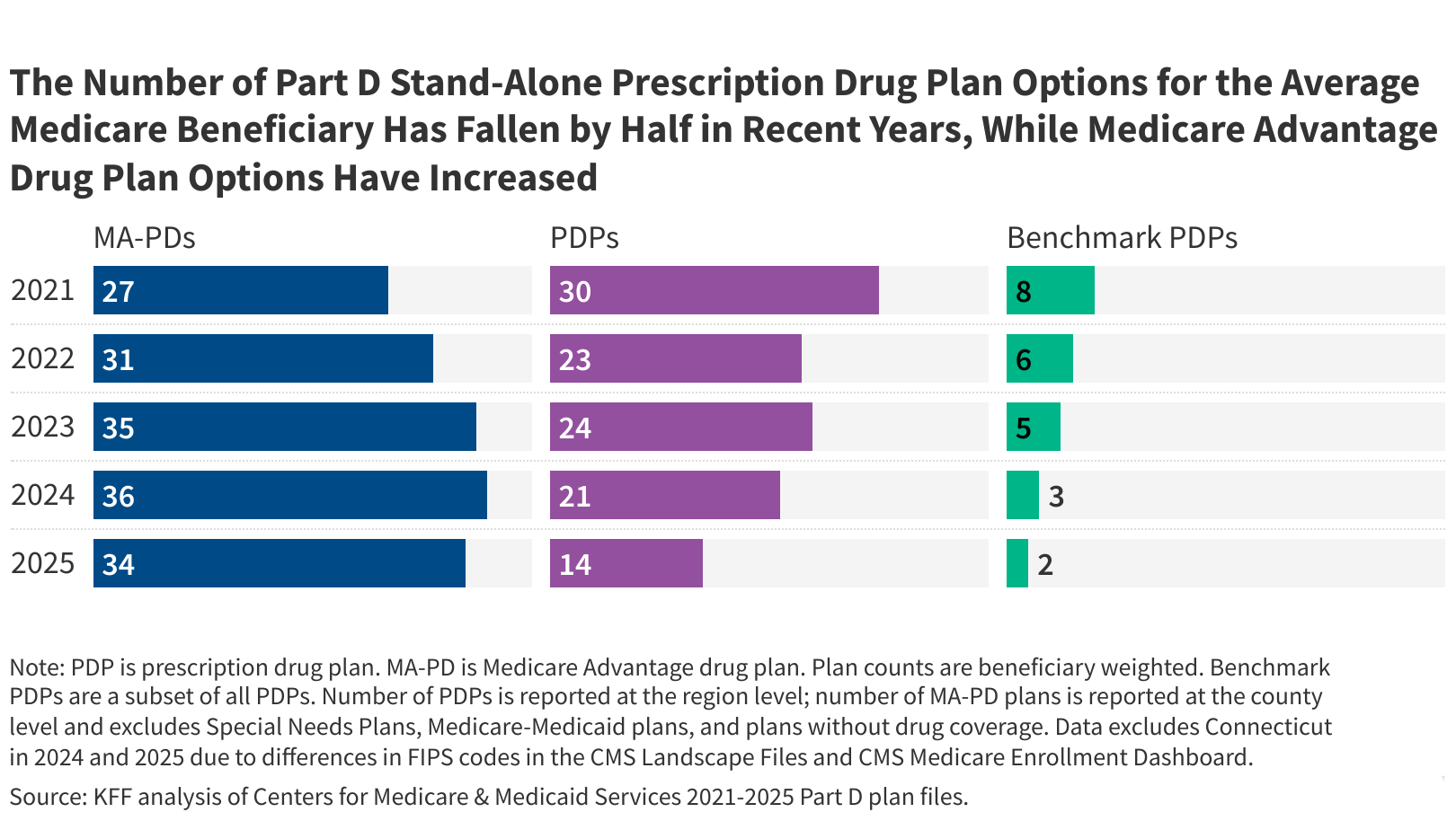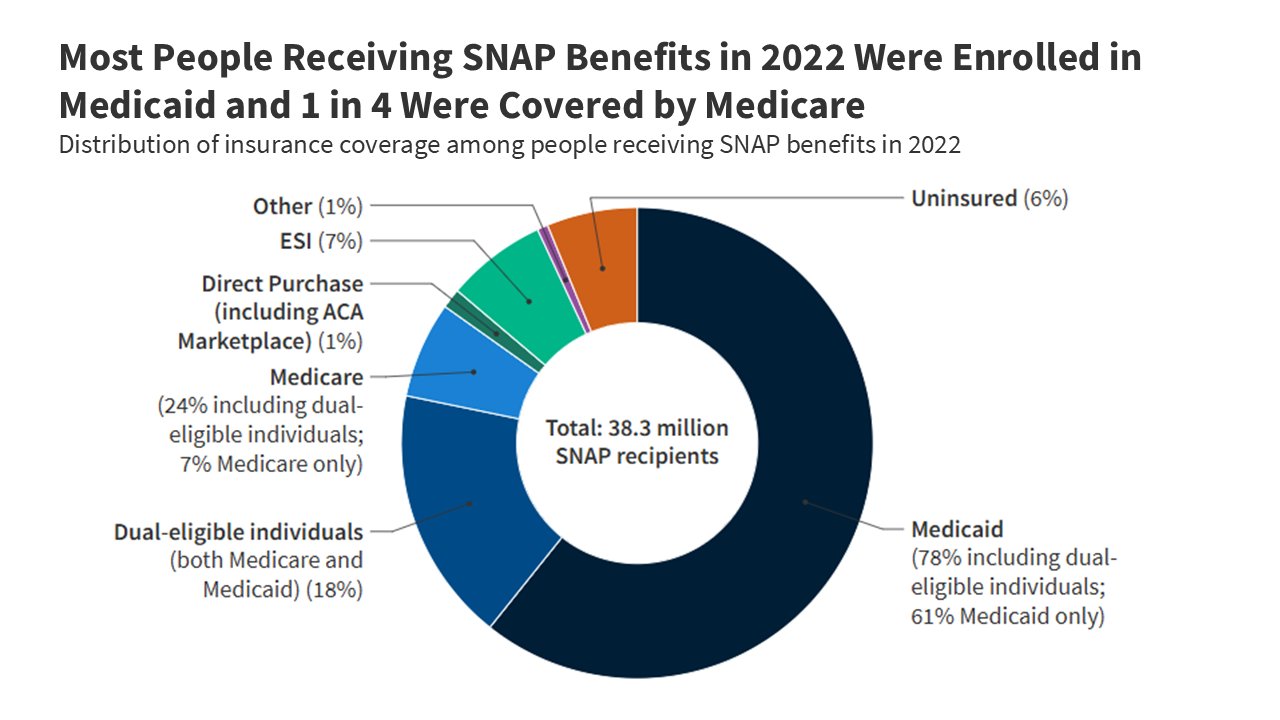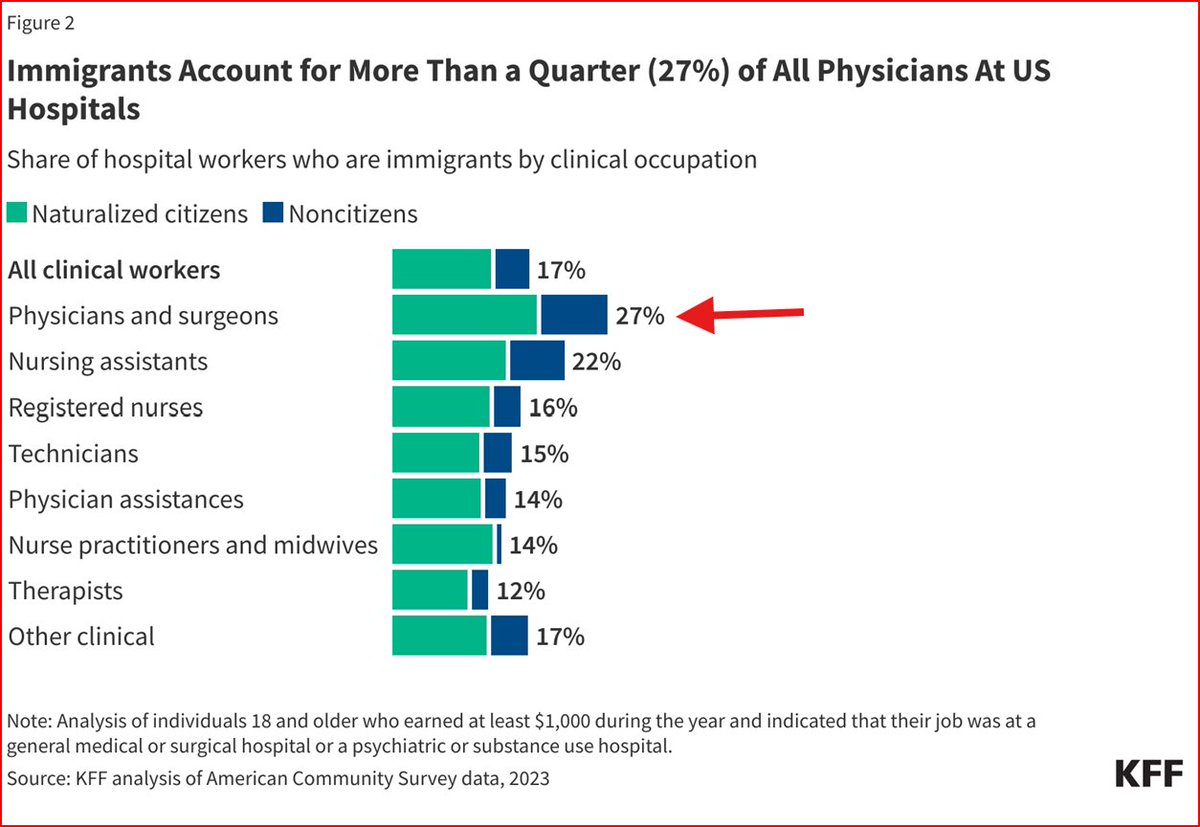
Tricia Neuman
@tricia_neuman
Senior Vice President @KFF, Executive Director of KFF's Program on Medicare Policy and Senior Advisor to the President
“This Republican policy bill is effectively a partial repeal of the Affordable Care Act to help pay for tax cuts, and should it reach President Trump’s desk, it would represent the biggest rollback in federal support for health coverage ever.”larry_levitt nytimes.com/2025/07/01/opi…

The $50 billion rural hospital/health care grant program can’t help but do a lot of good. It’s also likely to be highly political and isn’t timed or targeted to help a lot with Medicaid cuts. My latest column: kff.org/from-drew-altm…
There seems to be less competition in the Medicare Advantage market than some might suspect. In 2025, a single insurer had at least half of all Medicare Advantage enrollees in 44% of all counties. kff.org/medicare/issue…

Here's an issue that's not getting much attention that could become a serious concern for beneficiaries who choose traditional Medicare, including in rural areas. The future of Medicare stand-alone prescription drug plans is uncertain. W/ @jcubanski kff.org/medicare/issue…

Here’s why there's concern about how the impact of the reconciliation bill on Medicare. Because it's projected to increase the deficit, it triggers automatic Medicare spending cuts of ~$500 billion over 10 yrs, unless Congress takes action later this year. kff.org/quick-take/hou…
![tricia_neuman's tweet card. If enacted into law in its current form, and Congress takes no further action, [the House reconciliation bill's] increase in the deficit would trigger mandatory cuts, also known as sequestration,...](https://pbs.twimg.com/card_img/1947799728571498496/GGXO5dKf?format=png&name=orig)
Under the Senate-passed reconciliation bill, federal Medicaid spending in rural areas is estimated to decline by $155 billion. That is more than the House-passed bill — and far more than the $50 billion appropriated for the rural health fund. on.kff.org/45S2fOC
Here’s a tidbit related to the Medicaid cuts in the Senate bill that could have implications for older veterans. Most veterans (76%) who are enrolled in Medicaid are ages 50 and older, more than half of whom have a disability. 5 Key Facts About Medicaid and Veterans | KFF
“CBO estimates that enacting the substitute amendment would increase by 11.8 million the number of people without health insurance in 2034.“
Estimated Budgetary Effects of an Amendment in the Nature of a Substitute to H.R. 1, the One Big Beautiful Bill Act, Relative to the Budget Enforcement Baseline for Consideration in the Senate. cbo.gov/publication/61…
One of the biggest flashpoints for the "One Big Beautiful Bill Act" has been its impact on roughly 1800 rural hospitals, which is why Senate Republicans are proposing a new $15 billion rural health fund. However, there are still questions and concerns about the bill 👇 (1/7)
Our New @KFF analysis finds that 4.4 million Marketplace enrollees have a mental health diagnosis. Proposed Marketplace changes could leave many enrollees without insurance, making it harder to access mental health care. Read more from our analysis here: on.kff.org/4kiz6Qb
The reconciliation bill working its way through the Senate may not cut Medicare spending directly, but it would impact people with Medicare in multiple ways, including higher costs for more than 1 million low income beneficiaries. kff.org/medicare/issue…

Approximately 66 million people live in rural areas — about 20% of the U.S. population. Nearly 1 in 4 have Medicaid, a higher share than in urban areas (24% vs 21%). The reconciliation bill could have a big impact on health coverage in rural areas: on.kff.org/4lopnbI
The Big Beautiful Bill includes many health-related provisions that could impact people with Medicare. The bill would cut federal SNAP spending by nearly $300 billion over 10 years. NEW: Nine million Medicare beneficiaries receive SNAP food assistance . kff.org/medicaid/issue…

Why are senators looking protect rural hospitals as they consider Medicaid cuts? Many rural hospitals are struggling financially and have benefited from the ACA's Medicaid expansion. Our analysis explains: kff.org/1776e60/
The July 1 start date for new medical residents is fast approaching. Immigrants account for more than a quarter of all physicians in US hospitals. What will be the impact of new travel and visa restrictions in rural and other underserved areas? kff.org/racial-equity-…

The Senate bill increases Medicare premiums and cost sharing for more than 1 million low-income Medicare beneficiaries, based on CBO estimates of the House bill. How? By blocking a rule that would make it easier for seniors to enroll in the Medicare Savings Programs.

Yep. The reconciliation bill cuts benefits and increases out-of-pocket costs for more than one million low-income Medicare beneficiaries, according to CBO.
Undercovered are OBBBA's cuts to low-income Medicare beneficiaries & retirees: • ↑ Medicare premiums & cost-sharing for 1.3 million low-income beneficiaries • 62-64 year-old retirees are eligible for Social Security but subject to Medicaid & SNAP work requirements